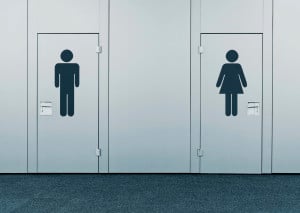
Source: Getty Images
Sexual pleasure is not a one-way street.
If you are a woman who has had one, two, or any number of sexual partners, you may know that sex should always feel good for all partners of any gender.
If you are a woman who has not yet had sex, you probably hope that your first time, and times subsequent, will be equally pleasurable for everyone involved.
After all, our sexual relationships are outlets for pleasure.
I mean, who doesn’t have a Kama Sutra app on their iPhone? Who hasn’t read “10 Ways to Please Your Partner With an Ice Cube” in a Cosmopolitan magazine?
Okay, maybe we’re all not all as guilty as I am, but the truth is that seeking sexual pleasure is normal and healthy – yes, even for you.
In a healthy sexual relationship, partners should discuss what turns them on and what boundaries they are willing to push.
They learn about one another’s bodies and maybe with time, develop synchronicity.
And foremost, they understand that enjoying the moment is what makes it special, whether both reach orgasm or not.
Surely, we all love orgasms. But our media and cultural perceptions would have us believe that heterosexual men are more deserving of orgasms.
In an article I recently read, for instance, the writer unashamedly wrote:
“It is no secret that both men and women alike have sexual urges. Men, however, feel the need to get off more often than most women.”
As if!
But there really is a tendency to believe that men desire sexual pleasure more than women.
I can’t think of one big blockbuster movie where a couple is having sex and the man doesn’t reach orgasm to signify the end of the sex scene. Can you?
And don’t even get me started on the fact that movies showing sex scenes where a woman is receiving pleasure are often marked as inappropriate and given higher ratings by the MPAA.
In 2010, the indie film Blue Valentine initially received an NC-17 rating from the Motion Picture Association of America (MPAA) for showing a brief (and non-nude, might I add) scene where actress Michelle Williams is receiving oral sex from her movie boyfriend, actor Ryan Gosling. The rating stands for “No One 17 and Under Admitted” and is reserved for movies with pornographic sex scenes.
Pornographic. Sex scenes.
Pornographic!
Similarly, the movie Monster’s Ball also faced an uphill battle with the MPAA when they originally gave the movie an NC-17 rating for showing a scene where the actress Halle Berry is receiving oral sex from actor Billy Bob Thorton.
The MPAA’s reluctance to label movies that show more realistic examples of sex between couples as inappropriate is a very telling sign of how our society views female pleasure
Even Ryan Gosling himself (hey, girl) had something to say about the Blue Valentine rating: “The MPAA is okay supporting scenes that portray women in scenarios of sexual torture and violence for entertainment purposes, but they are trying to force us to look away from a scene that shows a woman in a sexual scenario which is both complicit and complex.”
Even our beloved romantic comedies are steeped in stereotypes of sex.
I love the movie Forgetting Sarah Marshall. I could watch it ten times in one day and still laugh. But when I see the movie through my lens as a sexual woman and a feminist, I notice a lot of scenes that play up stereotypes about heterosexual sex.
In one scene the character played by Jason Segel, Peter, is trying to have sex with his movie ex-girlfriend Sarah, played by Kristen Bell. The key word is trying, because he is unsuccessful in getting an erection, and the moment is ruined. The scene is a pivotal moment to show that Peter is indeed over Sarah: his penis didn’t even want her.
With the media suggesting that male pleasure defines sex, it’s no wonder so many of us still believe that female sexuality is subdued and that what makes sex “good” is having a male partner who’s satisfied – regardless of your needs.
Heterosexual intercourse is considered over when the man reaches orgasm. That’s it. That’s the end. If the female orgasms, it’s just a bonus (and generally considered a huge triumph on the part of the man).
Watch any movie with heterosexual sex and you see this trend. The woman entices, the man cannot control his desires, and they have mind-blowing sex until they reach an explosive orgasm.
For some, it’s pleasing to watch. But is it realistic? Eh, not so much.
Now I know. I know what you’re thinking. It’s just a movie.
But hear me out: The media and society affect what we consider normal.
As adults, we have the liberty to be sexually curious and seek information. We can experiment and learn to understand our own sexuality.
But for young adults, especially young women who are perhaps not allowed to roam as freely as boys, media serves as a teacher.
If society and media is teaching us that men want sex more than we do, then it goes that their sexual pleasure is also more important, because, supposedly, “we don’t even care about it.”
And there’s a reason for this cultural framework.
It starts with the fact that young girls are rarely told to be assertive about their sexual needs and desires. It takes sexual experience for many of them to feel comfortable asking their partners to perform acts that give them more pleasure, and some women never come into that comfort.
I was raised to be sexually conservative. But when I was 15 years old, I watched the movie Original Sin with Angelina Jolie and Antonio Banderas. I can barely remember the plot, but I was mesmerized by the graphic and seductive sex scenes.
I wanted to have that sex.
What did I know about sex then? Nothing. But I had seen plenty of movies, and I had a mental picture book of sex scenes that I wanted to replicate with my boyfriend (who was, uh, non-existent at the time).
More than a decade later, I still watch movies like Original Sin and think, “I need to have that sex.”
Unfortunately, I don’t have an extra fluffy king size bed, I can’t get my back to arch like a perfect crescent moon, my hair never falls gracefully over my face, and inevitably, I will attempt something new, but will end up hitting my elbow with the night table.
Maybe I’m just a klutz, but I blame it on Angelina Jolie in Original Sin. How does she do that?
But no matter where we get our inspiration from, or whether we’re successful or not, I’m here to remind you that your pleasure matters. You deserve pleasure!
And if you think all sex is like in the movies, here are some ways to regain your confidence and have sex the way you want it:
1. Sex isn’t cookie-cutter.
Sex shown in movies lacks originality, but in reality, we aren’t all the same.
Pay attention to what touches or words turn you on, and relay that to your partner. I guarantee you they want to know what they’re doing right.
When you feel comfortable telling them what you like, start asking for things you’ve never tried before. Oral sex, anal sex, bondage, whatever!
Ask them if they would like to try something new, and if their not ready, be patient and respect their boundaries.
2. It’s not all about the orgasm.
In movies, all sex leads to orgasm. And if the man doesn’t reach climax, he is portrayed as being defective. The end goal is always a screaming orgasm – for men and women.
Honestly, the media overplays the importance of an orgasm.
Contrary to what we see in movies, orgasm-less sex happens, and it still feels good for the people involved. Long, pleasurable sex can be perfectly satisfying.
True intimacy is often what makes sex gratifying.
When we trust our partners, our bodies are relaxed and receptive to more than one sensation. A long session of lovemaking, without the pressure of reaching orgasm, can lead to feelings of closeness and emphasizes affection – neurobiologically!
Try making love for the sake of making love.
3. Take care of your own sex drive.
Many of us struggle with sexual insecurities.
These insecurities are caused by our desire to be “normal.” And according to the media, “normal” is a man with a hyperactive sex drive.
If you have a male partner, the truth is that sometimes he may have a lower sex drive than you do. If he does, don’t blame yourself or assume he doesn’t find you sexy. Instead, come up with a frequency that satisfies you both.
You can respect your partner’s wishes while also pleasing yourself. If he’s too tired for sex, have a solo session!
4. Be media savvy.
Of the top 250 grossing films of 2012, only 9% of directors and 15% of film writers were women.
When the vast majority of movie makers are male, their stories – including their sexual fantasies – become the focus.
The long term solution, of course, is to encourage women to pursue careers in the film industry.
But in the meantime, understand that women’s voices are underrepresented and female characters are caricatures of what male directors and film writers think we are.
Our fantasies and sexual desires deserve to be represented by us.
—
Girls are often raised more conservatively and are socially conditioned to set limitations on sexual activity.
And if the movie industry is an extension of our world, you can expect it to be just as sexist and patriarchal. But you don’t have to accept it.
When we write our stories and demand to see them portrayed, we redefine what is normal.
I needed to write this so I can let go of my own sexual insecurities.
I am not Angelina Jolie, this is not Original Sin, and my sex life is wonderful.
Redefining normal is easier than you think.
[do_widget id=”text-101″]
Patricia Valoy is a Contributing Writer for Everyday Feminism. She is a Civil Engineer, feminist blogger, and STEM activist living in New York City. She writes about feminist and STEM issues from the perspective of a Latina and a woman in engineering. You can read more of her writings on her blog Womanisms, or follow her on Twitter @besito86. Read her articles here and book her for speaking engagements here.
Search our 3000+ articles!
Read our articles about:
Our online racial justice training
Used by hundreds of universities, non-profits, and businesses.
Click to learn more




















